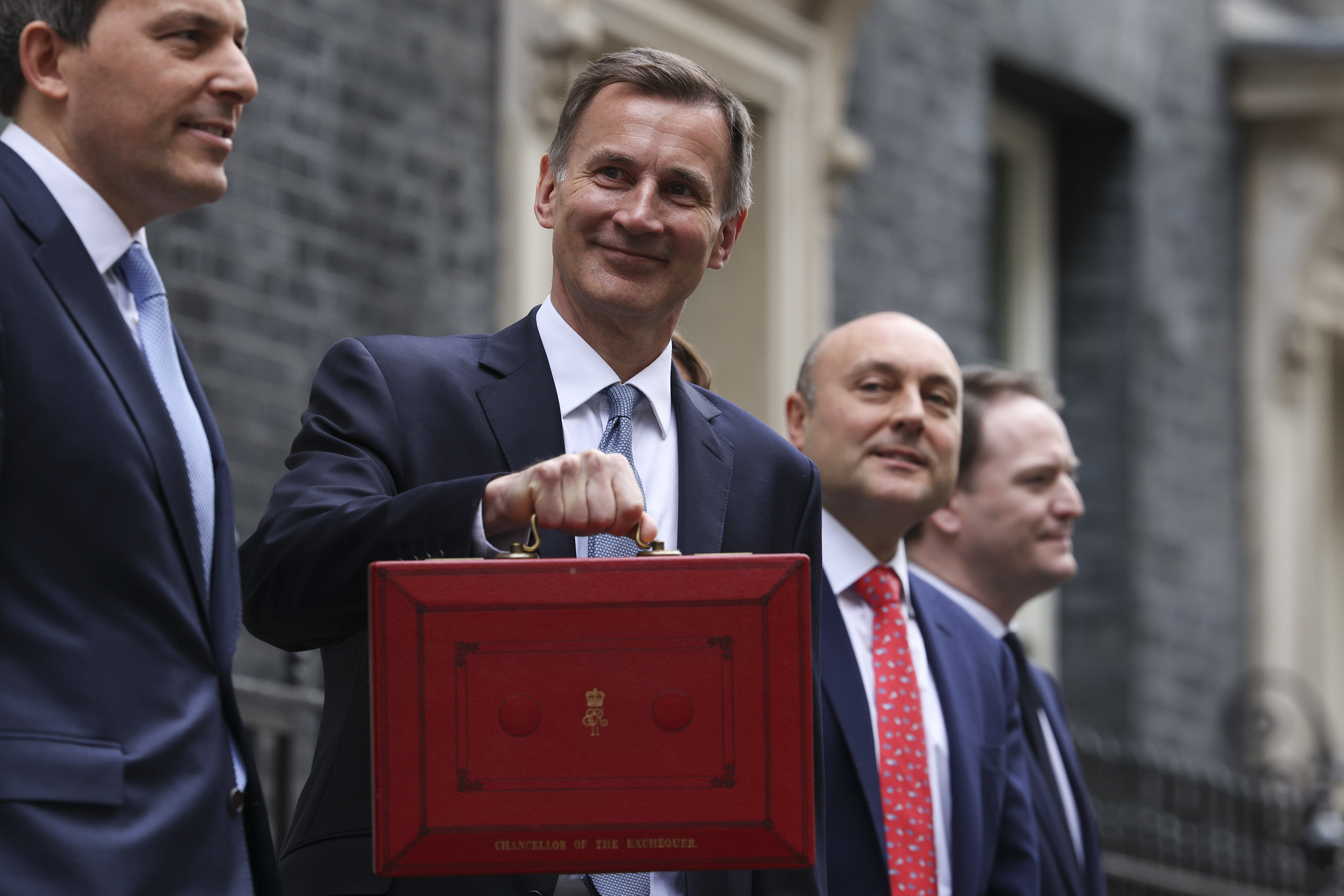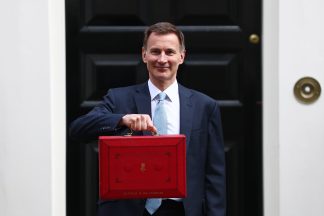Oil and gas companies will face another windfall tax on their profits after the chancellor confirmed the move in his Spring Budget.
Jeremy Hunt said the UK Government will legislate in the Finance Bill to abolish the Energy Profits Levy “should market prices fall to their historic norm for a sustained period of time”.
“But because the increase in energy prices caused by the Ukraine war is expected to last longer,” he said, “so too will the sector’s windfall profits.
“So I will extend the sunset on the Energy Profits Levy for an additional year to 2029, raising £1.5bn.”
The decision puts Hunt at odds with the Scottish Tory leader who had urged the chancellor not to extend the levy.

Douglas Ross, who is also the MP for Moray, had privately spoken with both the chancellor and the Prime Minister urging them not to go ahead with an extended tax on energy firms.
Speaking after the announcement, the Scottish Tory leader said he was deeply disappointed” and he will vote against the measure.
In a statement after the Budget was laid out in the Commons, Ross said: “While I accept the chancellor had some tough decisions to make, I’m deeply disappointed by his decision to extend the windfall tax for a further year.
“The SNP and Labour have abandoned 100,000 Scottish workers by calling for the taps in the North Sea to be turned off now.
“Although the UK Government rightly oppose this reckless policy – and have granted new licences for continued production in the North Sea – the budget announcement is a step in the wrong direction.
“As such, I will not vote for the separate legislation needed to pass the windfall tax extension and will continue to urge the chancellor to reconsider.”
 Downing Street
Downing StreetRishi Sunak first introduced a 25% energy profits levy back in May 2022 when he was chancellor. The UK Government said that brought in £2.6bn in its first year.
That came after Russia’s invasion of Ukraine led to a massive spike in the price of energy.
Oil and gas producers have benefited from the skyrocketing prices, with many recording record profits since 2021.
Hunt increased the levy in November 2022 to 35%, bringing the overall tax burden on North Sea oil and gas producers to 75%.
On Wednesday, the chancellor said the windfall tax will be extended until 2029.
Money raised from the levy could help pay for the chancellor’s 2p cut to National Insurance.
But the oil and gas sector has warned that furthering the levy could cost thousands of jobs and will stop companies from investing in the UK.
Ryan Crighton, policy director at Aberdeen and Grampian Chamber of Commerce, said: “This is the fourth Tory tax raid on the North Sea in two years and heaps more uncertainty on a sector which needs stability to survive,” he said.
“Not only is Jeremy Hunt losing the support of industry, he is also losing the support of his North-east parliamentarians who understand that the windfall tax is bad for jobs, bad for investment, bad for energy security and bad for the energy transition.
“We need investment in new North Sea oil and gas fields to maintain jobs and offset declining production. Without that investment, production could halve by 2030, which places thousands – perhaps tens of thousands – of jobs at risk.
“We are already seeing investors walking away from deals – with some showing open dissent towards the UK – and if that gathers pace, then the 1,000 jobs we have already lost to the windfall tax could be a drop in the ocean compared to what is to come.”
Kate Mulvany, principal consultant at energy consultancy Cornwall Insight, said that the money could help deliver the UK’s decarbonisation strategy, if used right.
“Increasing the duration of the oil and gas windfall tax (Energy Profits Levy) could be seen as positive for decarbonisation if the resulting profits are used to deliver the UK’s net zero plan,” she said.
“Yet, without a solid transition strategy away from the UK’s oil and gas dependence and no assurance that tax revenues will directly support decarbonisation initiatives, the potential upheaval in investment could outweigh the benefits, posing risks to both UK energy security and employment in the energy sector.
“The stability of the UK’s regulatory environment has historically been a significant draw for investors looking to support renewable energy projects.
“Prolonging the windfall tax could weaken investor confidence, at a time when the UK is seeking record levels of investment to deliver the transition to net zero.”
Follow STV News on WhatsApp
Scan the QR code on your mobile device for all the latest news from around the country






























